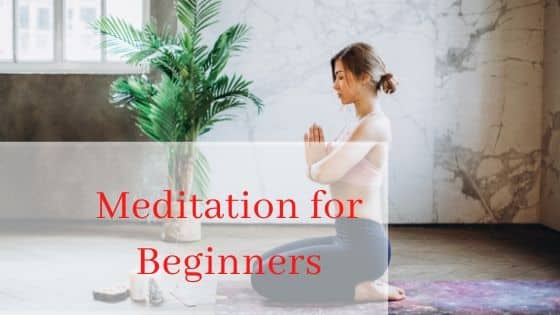
You might wonder if yoga is right for you if your body image is low and you are large. However, the truth is that this exercise can be beneficial for anyone, no matter your size. These are some suggestions to get you started on your journey to yoga. First, find a yoga center that caters to your specific needs. You will find classes that suit your needs, whether you are looking for a class that is a workout or a more relaxed atmosphere.
Poses that increase flexibility
Hatha yoga or yin are good options for those who are obese. These are both great options for obese people. However, you can adapt them to your needs. People with different physical abilities can make the poses easier by slowing down. The forward fold poses, such as the one shown above, releases the lower back. To keep the pose balanced, relax the shoulders and neck muscles.
The most effective pose to improve your flexibility is the half forward bend. This is achieved by standing with your palms facing one another and stretching your hands forward. Lean forward with the left leg and reach your right hand across to your right shin. Keep this position for 30 seconds, then switch sides. This will increase your core strength and quadriceps strength. The Extended side angle poses increases flexibility for those who are obese. You can do this by bending your left leg at the knee and stepping back.
Here are some ways to find a particular class

You don't need a celebrity physique to take yoga classes. Also, you don't necessarily have to wear spandex pants in order to get the most out of this ancient exercise. Yoga is for everyone regardless of size. This ancient practice benefits people of all sizes, genders and cultures. It has been around for thousands years. It is also not exclusive to people of a certain shape, so you can find a yoga class for fat people no matter what size you are. Even if obese, yoga can be used to increase flexibility and improve health.
All over the world, fat yoga classes are popping up from Sydney and Melbourne. Retreats are also being held in Hepburn Springs and Victoria. If you don't feel comfortable joining a class, you can try online reviews and Facebook pages to get a feel for what the other participants have to say. If you feel confident you can try the class out yourself. Many studios offer pictures that you can view to get a sense of the class.
Stigmas associated with plus-size Yogis
Yoga is not for everyone. Plus-size women are subject to a lot stigma. Plus-size women find it difficult to practice yoga and exercise due to stereotypes and negative attitudes. Penningtons' campaign seeks to end the stigma attached to these women and show that you can exercise and do yoga regardless of your body size. These are some ways to get over the stigma that plus-size yogis face.
We first looked at the perceptions of stigma using two methods: obesity and body mass. The study revealed a clear link between body mass levels and perceived stigma. Although perceived stigma did not change with the severity or extent of psoriasis in women, those with higher body mass scores had lower body-stigma scores. The relationship was stronger in obese women.
Locate a studio offering classes that are adapted to your body

Find a yoga class that is tailored to your body if you are searching for a yoga school. Although yoga poses can be difficult, many people do not want to practice it. Many people have neurological and physical limitations that make it difficult to do this kind of exercise. There are many places you can find classes that cater to your specific needs.
Sometimes it can be hard to decide what type of yoga class to attend while searching for a studio. A beginner's class is generally referred to as a "level one" class and is usually geared toward those with limited mobility or balance. Another option is a gentler, seated yoga class, which is appropriate for those with limited mobility or balance. A certified yoga instructor can alter a pose to fit the body of a student.
FAQ
How can I avoid mental health issues in the future?
It's not always easy to prevent mental illness. Here are some points to keep your mind clear:
-
Don't drink alcohol. It can alter your moods and increase your chances of developing depression.
-
Avoid using drugs. Drugs can cause brain damage and worsen your symptoms.
-
Get enough sleep. Sleep deprivation can make you feel anxious and depressed.
-
Exercise regularly. Exercise makes you feel happy and releases endorphins.
-
Make sure you eat healthy foods. Do not eat junk food. You will feel lethargic and depressed.
-
Spend quality time with loved ones. Spending time together with someone you love can boost your mood.
-
Have fun. Enjoy your life and be open to new experiences.
-
It is important to take breaks from social networking. Social media sites can make you feel lonely and isolated.
-
Take care of yourself. Treat yourself nicely, even if you aren't feeling great.
-
Ask for help. Ask for help if you are having difficulty coping. Talking to your family member or friend can be very helpful.
-
Remember to be kind and gentle with yourself. It helps to release stress and tension. It doesn’t mean something bad happened.
-
Be busy. Find something you like to do.
-
You should practice good hygiene. A lack of hygiene can make you look unattractive and unclean.
-
Stay connected. Connecting with others will help you stay positive.
-
Learn how you can relax. Meditation and yoga are two relaxation techniques that can help you deal with stress better.
-
Find meaning in your work. Finding purpose in your job and hobbies can bring you satisfaction.
-
Keep your eyes on the present moment. When you focus on the present moment, you won't worry so much about the future.
-
Set goals. You can set goals to motivate yourself to reach them.
-
Do something nice for you. Your self-esteem can be raised by doing something kind for yourself.
-
Practice gratitude. Gratitude can help you appreciate all the good things in your life.
-
Volunteer. Volunteering can be an enjoyable way to spend time and make a difference in the world.
-
Give back. Giving back can make you feel satisfied.
-
Watch out for warning signs. You should be aware of warning signs and reach out for assistance if you notice any changes.
Why is mental well-being important?
Mental health is crucial for everyone. Mental health is crucial for all people. So, it is essential to maintain a healthy mind.
Our bodies will begin to show signs of stress if they aren't feeling well. This can lead to problems like headaches, stomach aches and backaches. It is important to take care for our bodies and minds in order to maintain a healthy balance.
Is mental health more important than work?
Everyone's mental health is important, especially when working. You can relax if you are feeling stressed at work by going out with your friends, walking outside or listening to music.
If you find that you cannot relax, you should talk to your boss or supervisor. They might be able suggest ways to reduce stress.
Also, take care to your physical health. Eat right, exercise, get enough sleep, and eat healthy.
What does a psychologist say about mental health?
Psychologists believe that mental health is an essential part of human development. Psychologists also believe that mental wellness is not just about having mental illness free of all causes, but about being mentally healthy.
Different views are held by psychologists about mental health. Some psychologists think that mental health is not necessary because there are so many people who have no mental illnesses. Other psychologists believe mental health is crucial because we cannot function properly without it.
How do you know if you have a mental illness?
Persons may be diagnosed with mental illness if they have symptoms that are disruptive to their daily life. Symptoms of mental illnesses vary from person to person. However, the most common symptoms include: feeling sad, anxious, angry, guilty, hopeless, lonely, depressed, confused, worthless, guilty, suicidal, etc.
If a person meets at least three of the four criteria below, they may be diagnosed with a mental disorder.
-
Disturbed feelings or thoughts
-
Disturbed behavior
-
Disturbance in functioning
-
Inability to relate to others
Why is it essential to improve emotional health?
Happiness and well-being are dependent on emotional health. A person who isn't emotionally well will be unable to perform at their best. People suffering from depression often have difficulty working. They may also experience anxiety, panic attacks, insomnia, and other symptoms. These conditions can often be successfully treated with medication and therapy.
Statistics
- More than 50% will be diagnosed with a mental illness or disorder at some point in their lifetime.3 (cdc.gov)
- In any given year, an estimated 18.1% (43.6 million) of U.S. adults ages 18 years or older suffered from any mental illness, and 4.2% (9.8 million) (healthypeople.gov)
- Similarly, for positive mental health, there is likely to be substantial agreement about some typical components (e.g., resilience to stress) 6, and controversy about more atypical components (e.g., career consolidation). (ncbi.nlm.nih.gov)
- According to the National Alliance of Mental Illness (NAMI), one in five Americans experiences mental health issues which translates to more than 40 million adults a year. (doctorondemand.com)
- More than 40 million adults in the United States have an anxiety disorder, but less than 37% of people seek mental health treatment for their symptoms. (talkspace.com)
External Links
How To
What is the best way to improve your mental health?
Mental health refers primarily to your mental state and emotional well-being. It impacts how you feel and think, behave, relate to other people, sleep, eat work, learn, and have fun.
Everyone is concerned about mental well-being. Mental health is often associated with depression. Depression is a serious illness that affects millions of Americans every year.
Clinical depression is also known for its severity and requires that treatment be provided by a doctor. However, there are many types of depression, including milder forms that do not require medical intervention.
Depression is defined by the National Institute of Mental Health as "a common disorder characterised by a depressed state that lasts for most of the day," loss of interest or pleasure in almost every activity, guilt or low selfworth, disturbed sleep and appetite, poor concentration, and thoughts of suicide.
People experience depression in various ways. Others may feel helpless, sad, hopeless and unmotivated. Others may feel empty and unmotivated. Others may not feel anything at all.
Depression is treatable. Depression can be managed with medications, psychotherapy and lifestyle adjustments. Depression, if left untreated can cause issues at home, school, work and relationships.
Depression is more common in females than in men. However, both men and women can be affected. Depression is the most common cause of disability for both men and women between 15 and 44 years old.